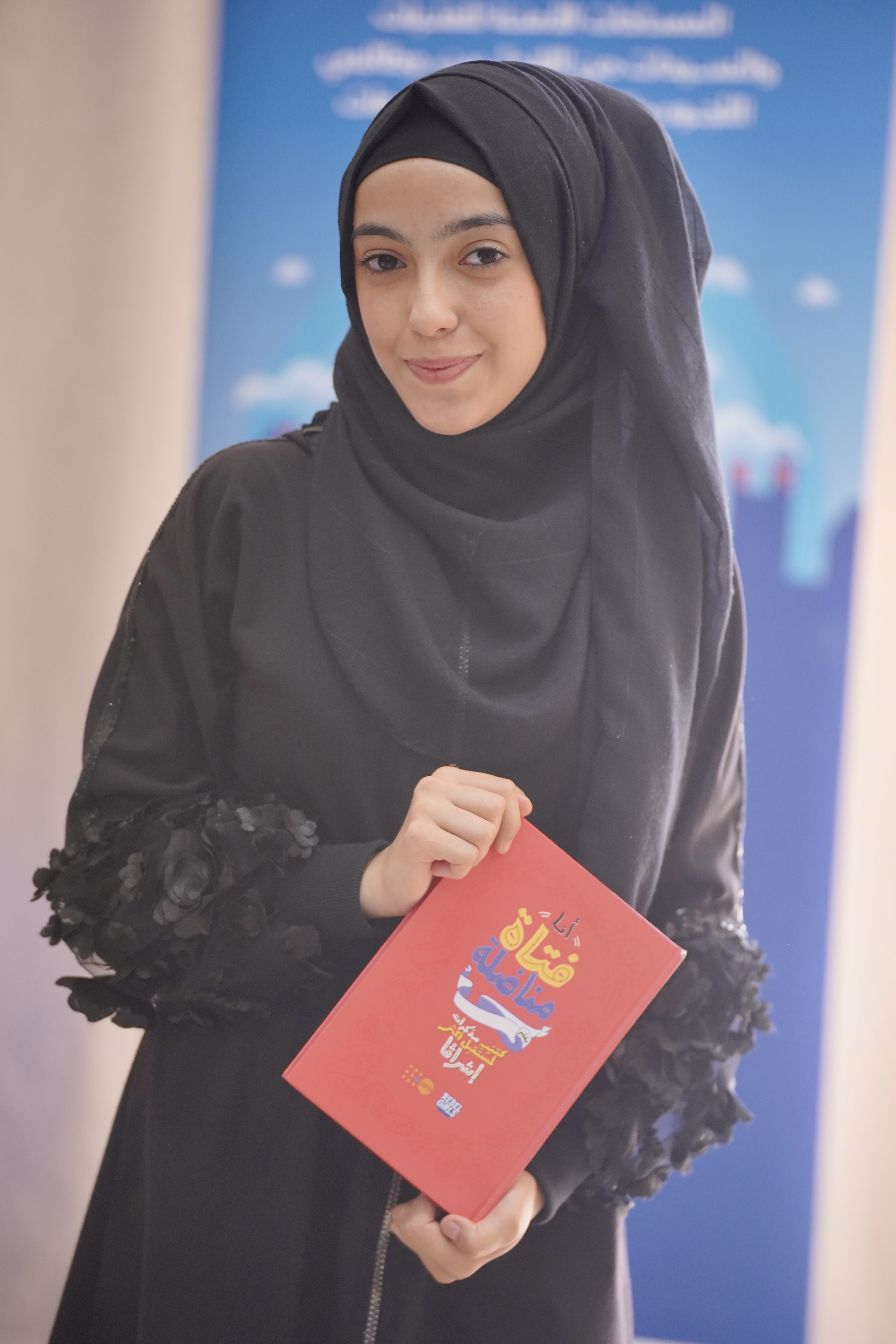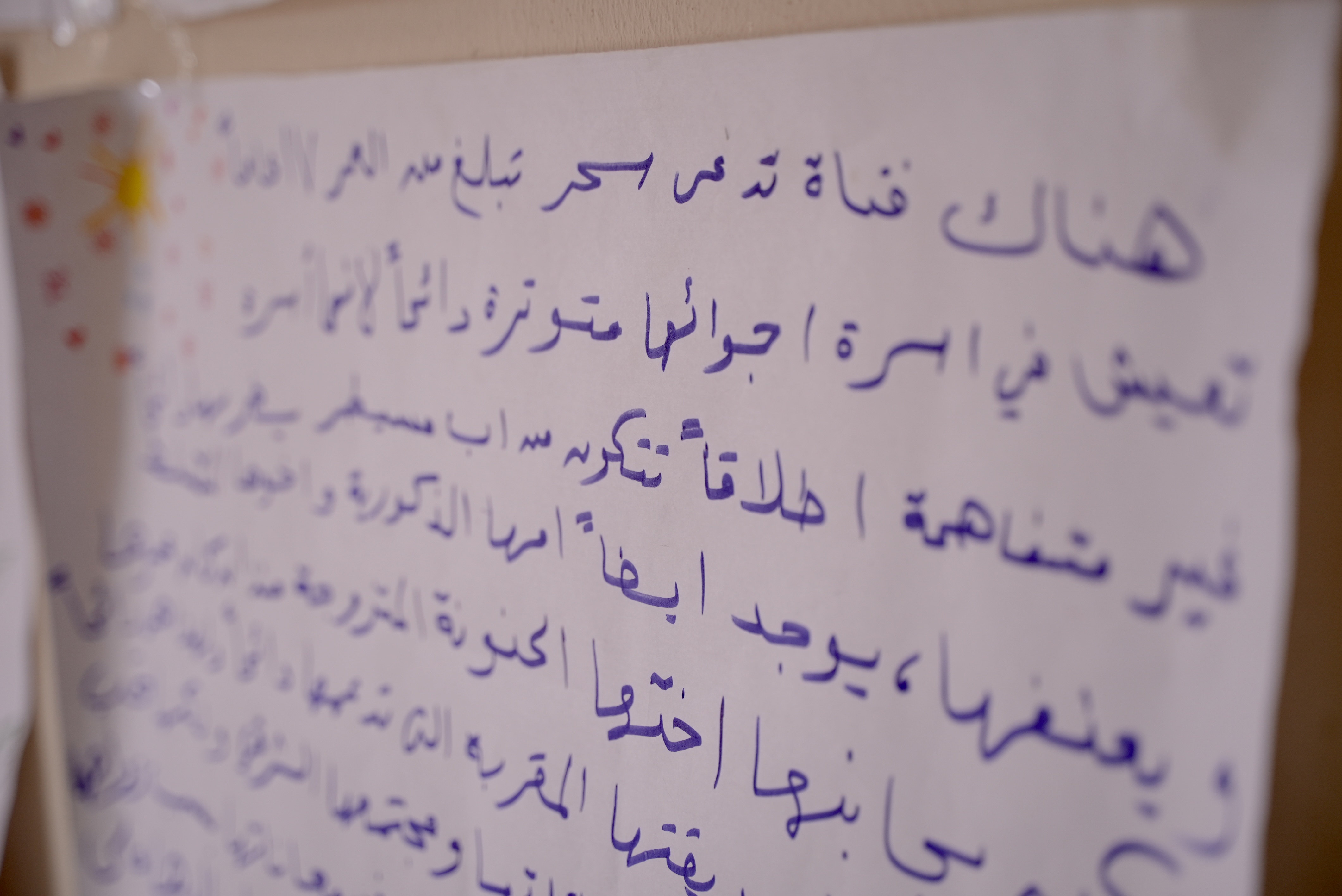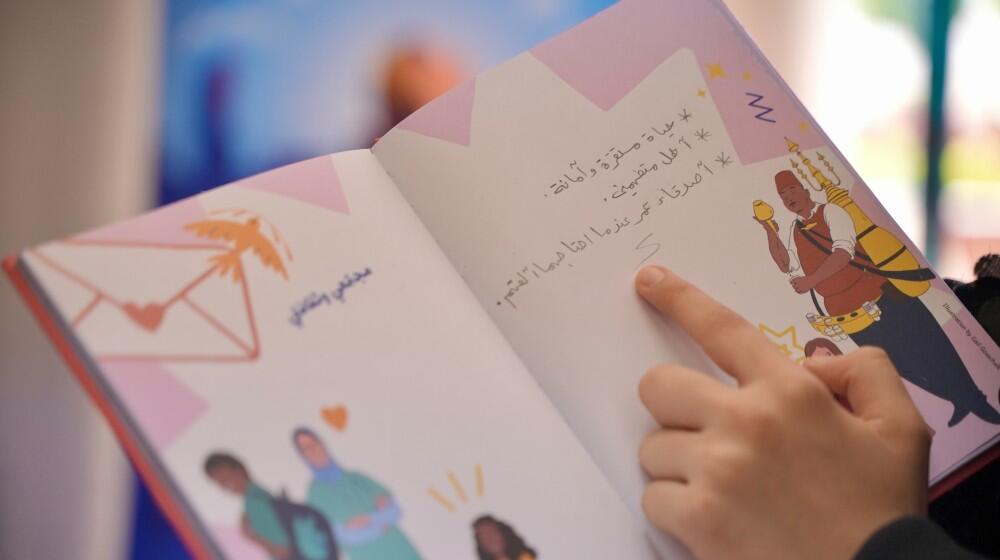“I dream of earning a college degree … I dream of getting a driver’s license so I can drive wherever I want,” 21-year-old Rama Mohamed wrote in her Rebel Girls journal.
Rebel Girls is a global initiative aimed at helping raise the most inspired and confident generation of girls around the world through encouraging their self-development through storytelling.

UNFPA Egypt has launched the first pilot program by distributing 200 journals to girls who visit the Safe Spaces – designed for women and girls from refugee and host communities – coupled with interactive activities to help them get started.
The journals include illustrations that challenge perspective, induce thought, and prompt action, encouraging girls to fill its pages titled with different ideas including “How I see myself,” “I have the right to..,” “Windows I would like to open,” and “My dreams and secrets” – under which was Rama’s entry.
For 20-year-old Reham Maher, the pages labeled “Windows I would like to open,” were her favorite because she “would like to see new places and learn about new things.”
Reham, who has been coming to the Safe Spaces for two years, said she also filled the pages of the journal with her dreams, namely that she would like to “travel around the world.”
The Safe Spaces are operated by the Ministry of Youth and Sports with Etijah, supported by UNFPA in different governorates, and offer women and girls from refugee and host communities access gender-based violence response services – including psychosocial, legal, and medical – as well as reproductive health services. Women and girls can also socialize and re-build their social networks, receive social support, acquire different skills.
Seventeen-year-old Rawda says she was immediately encouraged to use the journal.
“When you open the journal, you get the urge to write in it immediately,” she says, “there are things I want to say but couldn’t express, but the journal is a first step to writing and expressing how I feel.”
For 15-year-old Reham, who says she values her privacy, the journal comes in handy and was also an outlet for expressing her feelings.
“Everything you feel, you write down,” she says, “There are some things I don’t like to express verbally, so I write them down in my journal.”
During the activity, the girls were divided into groups and asked to visualize a character called “Sahar,” and write about her reality, her dreams and her achievements.
“Even though we were divided into separate groups, the story that came out made it seem like we were all writing together,” Rama says, explaining that Sahar’s reality, dreams and achievements were aligned among the different groups.
Rawda echoes this sentiment.
“Sahar was inspired by our own reality, our own dreams and our own problems,” she says. 
In all the narratives, Sahar faced challenges and lacked support from her parents. She dreamed of being independent and completing her education.
In the end, Sahar was able to earn a college degree and work in a relevant field advocating for women’s rights.
Through this exercise, the girls were meant to learn about the importance of having dreams, of facing challenges and for asking for support.
“I learned a lot from Sahar’s story,” 15-year-old Reham says, “I learned to have hope no matter what I’ve been through.”


